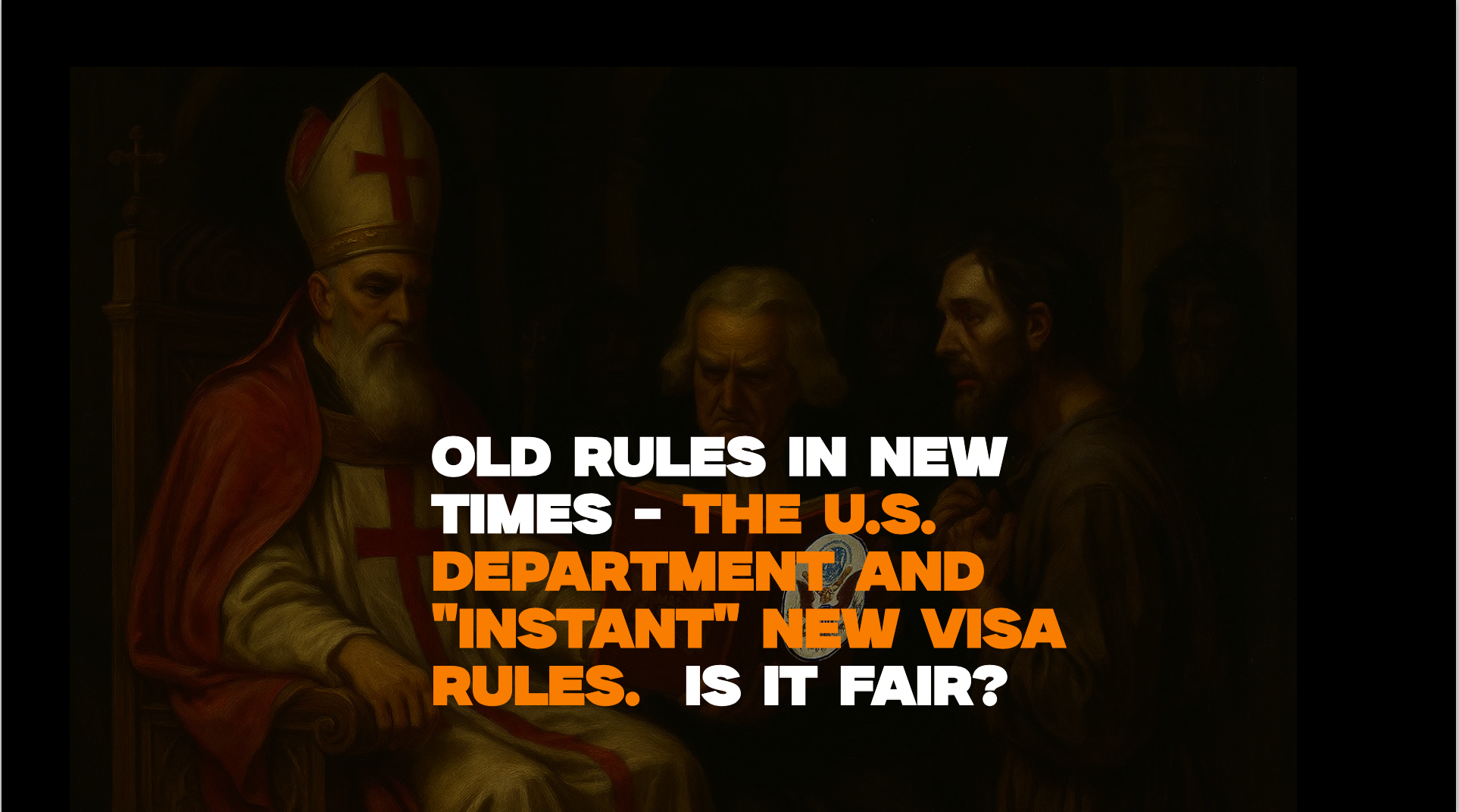
3rd Country NIV applicants suddenly need to apply in their home country – An overnight rule by the U.S. Department of State.
Is it fair?
Introduction
History often teaches us that rules can shift suddenly, leaving people punished for actions that were not unlawful at the time. In Tudor and Stuart England, the Anglican Church — working closely with the crown — sometimes applied new religious laws in ways that penalized individuals retroactively. Today, in 2025, a U.S. visa policy change is producing an unsettlingly similar effect.
The Anglican Church and Retroactive Enforcement
When Henry VIII broke from Rome in the 1530s and declared himself head of the Church of England, loyalty to the Pope — once the unquestioned norm — became treason. Ordinary believers who had followed centuries of practice suddenly found themselves on the wrong side of the law.
Later, under Elizabeth I, recusancy laws were enforced against Catholics who failed to attend Anglican services. At first, such absences were tolerated. But once recusancy statutes hardened, those same Catholics were punished for behavior that had been entirely acceptable in prior years.
In both cases, rules were reinterpreted or rewritten, and actions that had once been lawful were condemned after the fact. The result was a chilling form of retroactive enforcement.

The Modern Parallel: U.S. Nonimmigrant Visa Policy (September 6, 2025)
On September 6, 2025, the U.S. Department of State announced that all nonimmigrant visa (NIV) applicants must schedule interviews only in their country of nationality or country of legal residence. The long-standing practice of applying in a third country — such as Toronto or Mexico City — ended overnight.
For many, this wasn’t just an inconvenience. It created a trap:
- In consulates like Toronto, applicants must pay their visa fees before their case is even reviewed for acceptance.
- Many did so under the old rules, expecting to apply in Canada even if not Canadian nationals or residents.
- After the new rule took effect, those applicants discovered they could no longer proceed — and their fees were lost, as U.S. policy states they are “non-refundable and non-transferable.”
The applicants had acted in good faith, following the rules in place at the time of payment. Yet the new rule left them financially penalized for actions that were entirely legitimate when taken.
Why This Feels Like History Repeating
The comparison to the Anglican Church is not casual. In both cases, we see:
- Moving goalposts: What was permitted yesterday is penalized today.
- Good faith actions punished: Individuals followed the rules as they existed, only to find those rules redefined.
- Erosion of trust: Whether in church courts or modern visa systems, people lose faith when compliance today becomes violation tomorrow.
A Call for Fairness
Policy changes are sometimes necessary. But fairness requires that new rules apply prospectively, not retroactively. When governments penalize people who acted lawfully under old rules, they risk undermining the very trust on which their legitimacy depends.
The lesson from history is clear: retroactive enforcement — whether by church or state — corrodes faith in institutions. Applicants, like parishioners centuries ago, deserve consistency and fairness.
Closing Thought
Old rules may wear new clothes, but their effects feel all too familiar.
